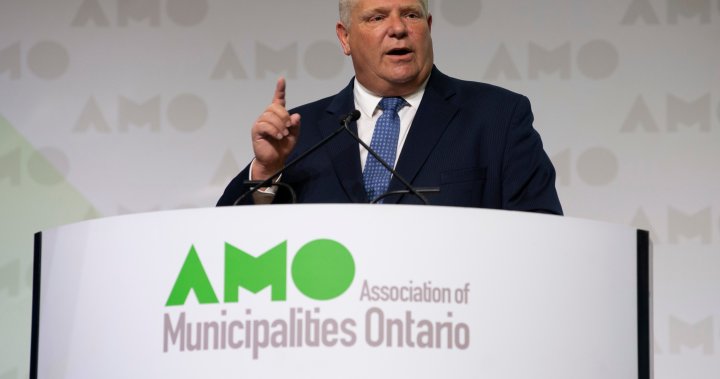
Ontario launched audits to find ‘waste’ at city hall. No one knows what they say
Global News
After backlash over changes to the fees developers pay municipalities at the end of 2022, the province launched audits of local finances. A year later, they were cancelled.
When Ontario introduced major changes to the fees developers pay towns and cities when they build new homes, the government was met with fierce and immediate backlash.
Municipalities said new rules, introduced under Bill 23 at the end of 2022, would cost them millions and lead to massive property tax increases for residents.
Local leaders rained criticism down upon Queen’s Park: politicians handed out postcards to homeowners claiming tax increases would be the fault of the provincial government and staff wrote reports suggesting large-scale cuts would be necessary.
Feeling the heat, Ontario Premier Doug Ford and then-housing minister Steve Clark launched audits of a select few cities and promised that they would be made “whole” if they discovered losses.
Audits were announced for Brampton, Caledon, Mississauga, Newmarket, Toronto and the Region of Peel. The government did not explain why those six had been chosen.
“I’ve spent four years down there as part of the audit committee, the vice-chair, I know there’s waste down at the city,” Ford said on Dec. 1, 2022, referring to his time as a Toronto city councillor.
“We want to work collaboratively with all the cities and municipalities. Our goal, at the end of the day, is to build homes — affordable homes, attainable homes. And we are not going to budge on the development fees.”
The audits began in the summer of 2023 and the first half — a financial analysis of the impacts of Bill 23 — was completed sometime in the fall. Then, without sharing the results of the audits, the government cancelled them.


















